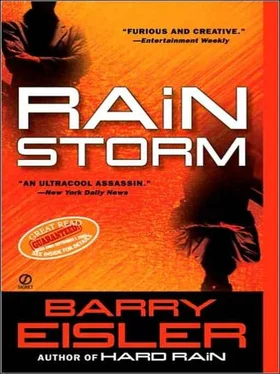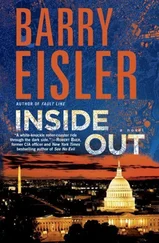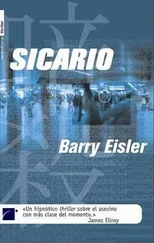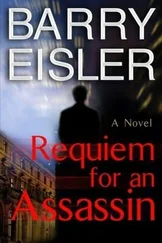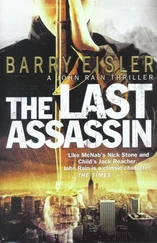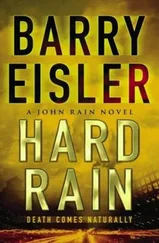“I understand,” he said, nodding, seeing that door opening wider. “I won’t leave anything out.”
I said nothing. After a moment, he took another deep breath and said, “The man you were hired to… go after. He found out about you. That’s how this started.”
“Say his name.”
“His name?”
“What did I just tell you about being vague? Are you trying to see how far you can push me? Say his fucking name.”
There was a pause, during which he looked like he might be sick. He said, “Belghazi.”
“Good. How did Belghazi ‘find out’ about me?”
“Someone was sent to Macau to kill him. At least, he thinks someone was. A Frenchman, guy named Nuchi, an independent contractor with a lot of Middle Eastern connections. Turned up dead in Macau less than a week ago with a broken neck, at the same time that the man… that Belghazi happened to be out there. Belghazi wanted to know what had happened. Did we know who had sent the guy, that kind of thing.”
“What did you tell him?”
“That we didn’t know anything about it. Which turned out to be true. Except that, when I started looking into it, I found out that we had sent someone, just not Nuchi. We sent you.”
“But you didn’t send the other guy.”
“Who can say for sure? This shit is obviously being set up through outside channels, or you never would have been sent in the first place. But I don’t think that even the idiots behind sending you would have been so stupid as to send two operators on the same op without informing them first.”
He was getting more talkative, which was good. I wanted to keep him going, to continue to foster his new-found loquaciousness. This way, he would be used to the dynamic by the time we got to the heart of the matter, at which point the act of betraying secrets would seem to be not much more than what he had already said and done. Contrary to popular imagination, a good interrogation is much more like a seduction than it is like torture.
“Who do you think sent Nuchi, then?” I asked.
He shook his head. “Nobody knows. Nuchi does contract work for various Arab governments and terrorist groups, so the most likely explanation is that he was working for one of his usual clients. Maybe someone who Belghazi cheated, maybe someone trying to muscle in on Belghazi’s sources or on his networks. It’s actually good that the guy is dead. If you did it, you ought to get a medal.”
“But instead of a medal, you warned Belghazi that I was coming after him.”
There was a pause, during which he grappled silently with the realization that I knew this, too. Where possible, you want to give the subject the impression that you already know everything he’s going to tell you. This makes him afraid to hold anything back, and helps him rationalize full disclosure: after all, he’s not divulging anything you don’t already know.
“Yes,” he said, after a moment. “We warned him.”
We , I thought. Come back to that .
“I’d like to hear more about why,” I said.
He closed his eyes, again looking as though he might be sick. “There’s a… relationship there,” he said, after a moment.
Another vague reference , I thought. But I waited to see whether he would find a way past the mental logjam caused by his desire to protect his information, on the one hand, and his desire to still be alive when I left his apartment, on the other.
“He gives us information,” he said finally. “So we… protect him.”
“So Belghazi is a CIA asset,” I said. My tone indicated that this was no great revelation to me, but in fact I was surprised.
He blanched at hearing it out loud. “In a way. He’s not on the books as an asset, he hasn’t been vetted that way, as a source he’s too sensitive and we can’t take a chance on the relationship being known outside the division. But he gives us information.”
“NE Division?” I asked, showing him again that I knew a great deal.
“Jesus,” he said. “How do you… yes, NE.”
“And the information he gives you concerns…?”
He sighed, perhaps now rationalizing at some level, Well, I’ve come this far, what can it hurt, and he probably knows most of it anyway… .
“Concerning the flow of arms, particularly WMD precursors, to groups that might use them against the United States.”
“Precursors?”
“Precursors to weapons of mass destruction. Enriched uranium. Nuclear centrifuge designs. Anthrax culture. EMPTA, a chemical used in the production of VX gas. Etcetera.”
“I’m confused,” I said. “I thought Belghazi is heavily involved in all of this.”
He shook his head. “Belghazi deals in the old-fashioned stuff. Guns and C-4 and RPGs. Stuff we’re used to, that we can live with.”
“I didn’t realize the CIA could be so accommodating.”
“Look, where do you think we get information on WMDs? From choirboys? Nobel Peace Prize winners? Sure, Belghazi is bad, but he’s an angel compared to some of the characters we’re trying to stop.”
“So he gives you information on some of the really bad guys out there…”
“And in exchange we protect him, let him continue with his trade.” He paused and looked at me. “Look, I’m cooperating. Can you untie me? I think I’m losing circulation.”
Nice try , I thought. I’d wrapped him up in such a way that the pressure of the bindings would be maximally distributed and no marks would be left. Accordingly, I knew his circulation was unimpaired.
“You’re doing well,” I said. “If you keep it up, I’ll untie you enough so that you’ll be able to get out of the rest of it by yourself, and I’ll leave.”
“All right,” he said, no doubt comforted by our rational exchange, the civilized back-and-forth of bargaining. Denial again. A guy breaks into your apartment, lies in wait, knocks you out, ties you up, but-no problem!-you’re willing to trust him to keep his word after that. At least you are if you desperately want to believe that you can trust him, glittering hope triumphing, as it often does, over the paler hues of common sense and gut instinct.
“So Belghazi gives you information, and you give him protection,” I said, hoping to jar loose additional information by reflecting back what he’d already said.
“Yes. It’s not an uncommon system. Police departments do it all the time. They couldn’t fight crime without it.”
“Belghazi is a snitch,” I said.
“Exactly.”
I noticed that he had moved us away from the specifics of the CIA’s relationship with Belghazi to a more general discussion of these sorts of relationships in law enforcement. It was nicely done. Albeit futile.
“You say you ‘protect’ Belghazi,” I said. “Tell me more about that.”
His pupils dilated and his eyes shifted right again. He didn’t want to tell me the truth, and was trying to come up with a substitute.
“I can see you don’t want to talk about this, Mr. Crawley,” I said, “and that you’re about to try to fabricate. So, before you say anything, you should know that, if I sense that you’re lying, or even being incomplete, I’m going to pull that pillow out from under your head and smother you with it. Imagine what that’ll be like.” I smiled as though I had just wished him a nice day.
He blanched, then nodded quickly. “All right. Sometimes we share information with him-say, about a rival broker, another deal that’s getting put together. Belghazi can use that kind of intelligence to scuttle the other deal, or undercut it. Twice he’s even used the information we provided to have a rival eliminated, which we generally view as a not undesirable outcome. Or if we learn that he’s being watched by a rival intelligence service, or by law enforcement, we warn him.”
Читать дальше
